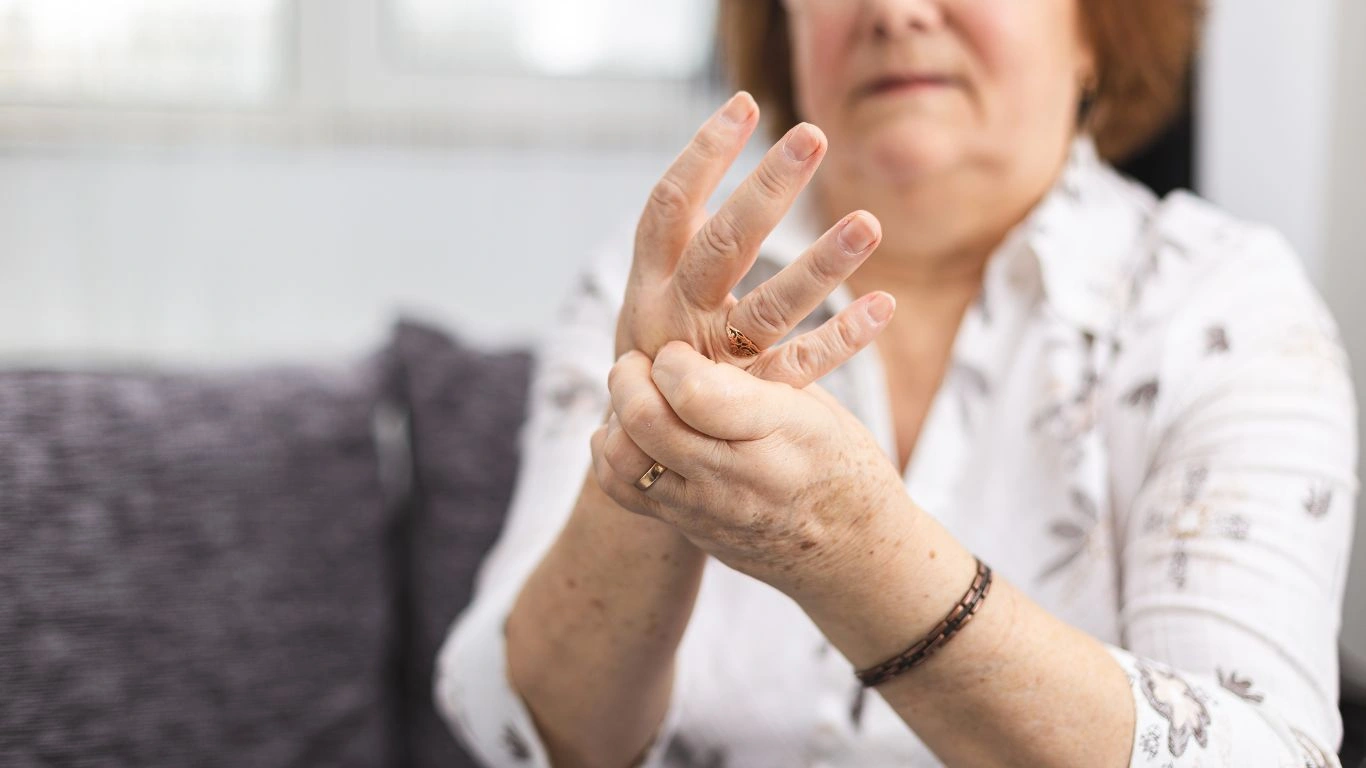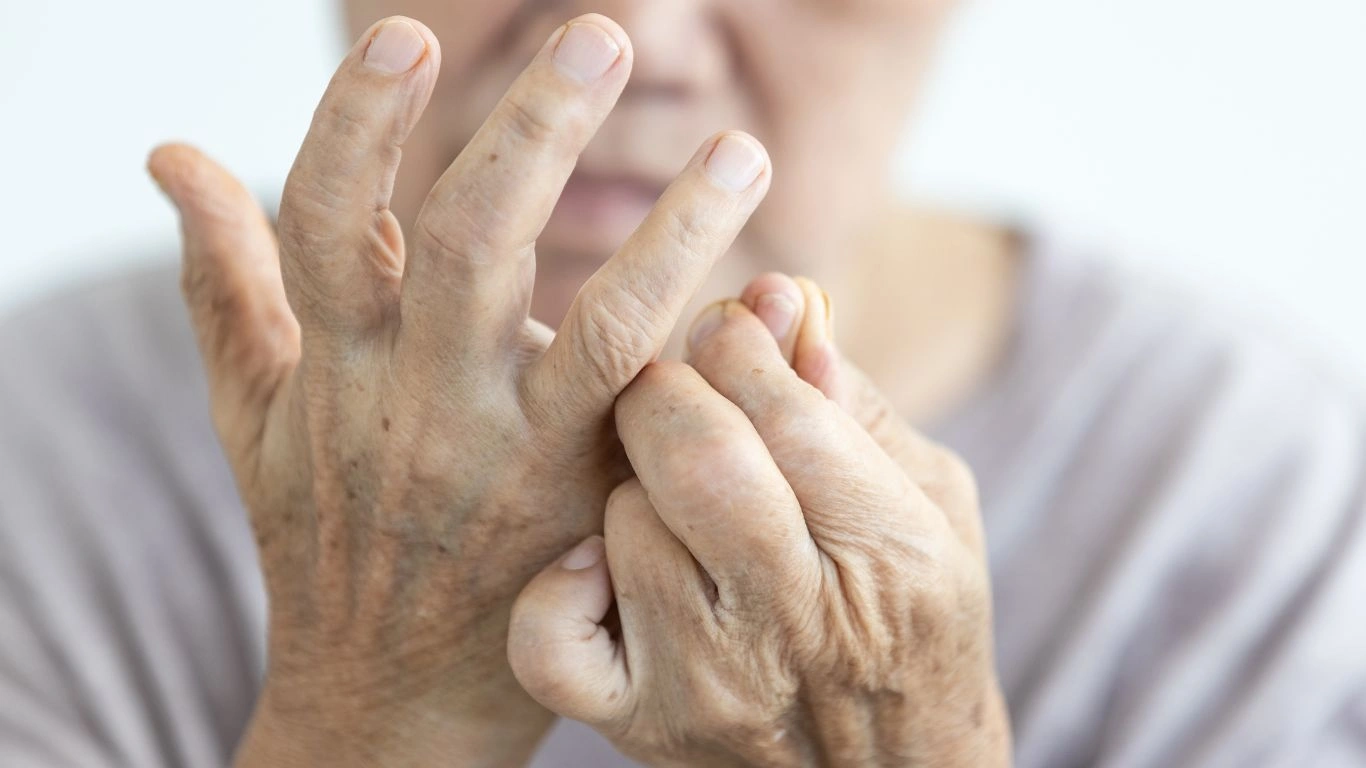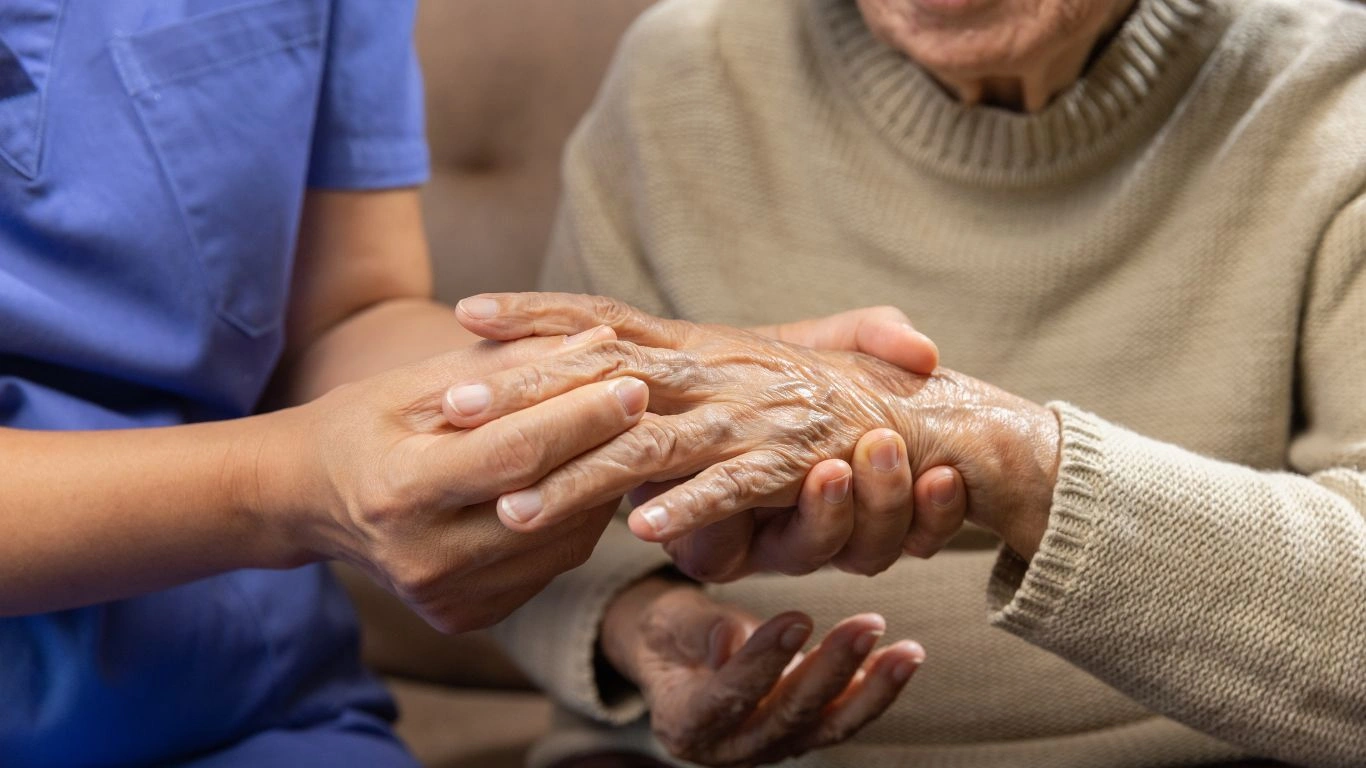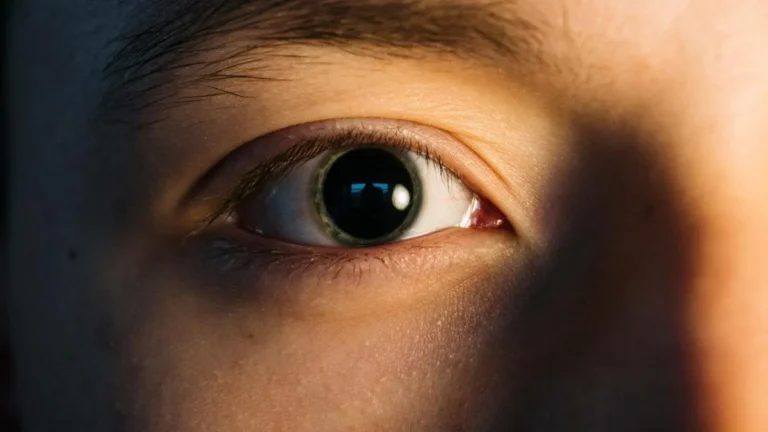How Can Rheumatoid Arthritis Cause Depression? Uncover the Link
Rheumatoid arthritis (RA) is a chronic autoimmune disease that affects millions of people worldwide. It’s known for causing inflammation, pain, and stiffness in the joints. But did you know that RA can also have a significant impact on mental health? Many people who live with rheumatoid arthritis often face emotional and psychological challenges that are just as debilitating as the physical symptoms. In fact, one of the most common questions I hear as a Rheumatology Nurse Practitioner is, “Can rheumatoid arthritis cause depression?” The short answer is yes—rheumatoid arthritis can indeed contribute to the development of depression, but the connection is more complex than you might think. Let’s take a deeper dive into how these two conditions are linked and what it means for those living with RA.
Understanding the Link Between Rheumatoid Arthritis and Depression

Living with rheumatoid arthritis can feel like an uphill battle. As a nurse practitioner, I’ve worked with many patients who not only struggle with the physical symptoms of RA but also with the emotional toll it takes. Chronic pain, limited mobility, and constant fatigue can often lead to feelings of frustration, helplessness, and sadness. When these feelings persist, they can spiral into depression, which is a serious mental health condition that can further affect a person’s quality of life.
Why Does Rheumatoid Arthritis Contribute to Depression?
The relationship between rheumatoid arthritis and depression is multifaceted. On one hand, the physical challenges of RA—such as joint pain, swelling, and the inability to perform everyday tasks—can lead to emotional distress. On the other hand, the inflammatory processes involved in RA might also play a direct role in triggering depression. Research has shown that inflammation in the body may affect brain chemistry and contribute to symptoms of depression.
- Chronic Pain and Fatigue: Living in constant pain or feeling exhausted all the time can make it hard to stay positive. Over time, this can lead to a decrease in social activities, loss of interest in hobbies, and withdrawal from loved ones—hallmarks of depression.
- Disruption of Daily Life: As RA progresses, daily activities like walking, cooking, and even dressing can become challenging. The frustration and helplessness associated with these limitations can create a sense of hopelessness, which is often linked to depression.
- Inflammation and Brain Function: The idea that inflammation in the body could affect the brain is a newer area of research. Some studies suggest that the inflammatory cytokines released during RA flare-ups could impact brain areas involved in mood regulation, contributing to feelings of depression.
How RA Patients Can Identify Signs of Depression

Recognizing depression in individuals with rheumatoid arthritis can be tricky. Sometimes, the signs of depression overlap with the physical symptoms of RA, making it difficult for both patients and healthcare providers to differentiate between the two. However, understanding the warning signs can help in seeking early intervention. Here are some common symptoms to look out for:
- Persistent Sadness: Feeling sad or down most of the day, nearly every day, can be an indication of depression.
- Loss of Interest: A noticeable loss of interest in activities that once brought joy or fulfillment.
- Fatigue: Extreme tiredness that doesn’t improve with rest—especially when it’s more severe than typical RA fatigue.
- Changes in Appetite: Significant weight loss or gain, or a lack of interest in food, can be a sign of depression.
- Difficulty Concentrating: Finding it hard to focus or make decisions, which could affect your ability to manage RA treatment effectively.
How Depression Affects the Management of Rheumatoid Arthritis
When depression takes hold, it can make managing RA more difficult. In fact, depression can worsen the symptoms of RA and interfere with treatment adherence. Patients dealing with depression may be less likely to keep up with their medications or attend physical therapy sessions. This can create a vicious cycle where RA symptoms worsen, leading to more emotional distress and a further decline in mental health.
In my practice, I’ve seen firsthand how treating depression alongside RA can lead to better overall outcomes. When patients address their mental health concerns, they often experience improved physical health, too. This is why it’s crucial for healthcare providers to assess both the physical and mental health of individuals with RA and offer a holistic treatment approach.
The Importance of Seeking Help

If you’re living with rheumatoid arthritis and are feeling down or overwhelmed, you’re not alone. It’s important to talk to your healthcare provider about what you’re experiencing. Seeking help for depression is just as vital as treating the physical symptoms of RA. Mental health professionals can offer therapy or recommend medications that may help improve your mood and overall well-being.
Many patients have found relief through a combination of cognitive-behavioral therapy (CBT), antidepressants, and lifestyle changes. Exercise, even light activity, can also be an effective way to boost your mood and improve your energy levels. It’s crucial to take a proactive approach in managing both your physical and mental health to live your best life with RA.
In the next part of this article, we’ll dive deeper into treatment options for managing both rheumatoid arthritis and depression. Stay tuned for tips on how you can maintain a positive outlook and effectively manage these two conditions.
Managing Depression Alongside Rheumatoid Arthritis

In Part 1, we touched on how rheumatoid arthritis (RA) can contribute to depression. Now, let’s dive into what you can do about it. Dealing with both RA and depression may seem overwhelming at times, but there are effective strategies to help manage both conditions simultaneously. As someone who’s worked with many patients navigating this challenge, I can tell you that a combined approach of medical treatment, emotional support, and lifestyle changes can make a significant difference. It’s not about choosing one over the other—it’s about addressing both RA and depression together.
Medications for Both RA and Depression
When it comes to treating rheumatoid arthritis and depression, medications play a key role in managing symptoms. In my experience, a comprehensive treatment plan often includes both disease-modifying anti-rheumatic drugs (DMARDs) for RA and antidepressants for depression. However, it’s essential to work closely with your healthcare team to find the right balance and avoid any potential interactions between medications.
- RA Medications: DMARDs, biologics, and nonsteroidal anti-inflammatory drugs (NSAIDs) are commonly prescribed to help control RA symptoms. These drugs can reduce joint inflammation, pain, and stiffness, which may, in turn, help improve overall mood.
- Antidepressants: SSRIs (Selective Serotonin Reuptake Inhibitors) and SNRIs (Serotonin-Norepinephrine Reuptake Inhibitors) are often prescribed for depression. These medications can help balance brain chemicals that regulate mood, offering relief to those dealing with emotional distress due to RA.
- Working with Your Doctor: It’s vital to keep your healthcare provider informed about any changes you experience, whether physical or emotional. Sometimes, finding the right combination of medications takes time, but it’s worth the effort to get it right.
Therapies That Can Help Manage RA and Depression

Medications are just one part of the solution. Another critical aspect of managing RA and depression is therapy. Both cognitive-behavioral therapy (CBT) and other forms of counseling can be extremely beneficial. If you’re wondering whether therapy can really help, let me share some personal insights from my time working with patients. I’ve seen patients who initially felt skeptical about therapy, but after a few sessions, they noticed positive changes in both their mental and physical well-being.
Cognitive-Behavioral Therapy (CBT) for RA and Depression
CBT is a type of talk therapy that focuses on identifying and changing negative thought patterns. This therapy has been proven to help people with chronic conditions like rheumatoid arthritis better cope with their illness and associated depression. It can also provide strategies for managing pain and stress, both of which can trigger or worsen depressive episodes.
During CBT sessions, you’ll work with a therapist to reframe thoughts like, “I can’t do anything because of my RA,” to more empowering statements such as, “RA doesn’t define me, and I can still do things with modifications.” These shifts in mindset can help improve your outlook, reduce feelings of helplessness, and enhance your overall mental resilience.
Support Groups: Connecting with Others Who Understand
Sometimes, the best therapy comes from simply talking to someone who truly understands what you’re going through. RA support groups—whether in person or online—can provide a sense of community and help you realize that you’re not alone. These groups offer emotional support, practical tips, and a safe space to vent frustrations without judgment. Personally, I’ve witnessed the positive impact these groups can have on people. There’s something incredibly comforting about hearing someone else share a similar experience.
- Emotional Validation: Support groups validate your feelings and let you know you’re not crazy for feeling down. Many people living with RA face the same emotional hurdles.
- Practical Advice: Hearing how others manage their RA while dealing with depression can offer fresh ideas and strategies that you might not have considered before.
- Connection and Empowerment: Connecting with others who understand your challenges can leave you feeling more empowered and less isolated.
Lifestyle Changes That Can Help Improve Both RA and Depression

Alongside medications and therapy, making certain lifestyle changes can help you manage both rheumatoid arthritis and depression. In fact, many of my patients have shared that these small, everyday changes have had a profound impact on their overall health and well-being.
Exercise: A Natural Mood Booster
You might not feel like moving when you’re in pain or feeling down, but exercise can actually be one of the best ways to fight depression and manage RA. Studies have shown that physical activity can boost your mood by increasing the release of endorphins, the body’s natural mood elevators. Exercise also helps reduce inflammation, which can be beneficial for RA.
But don’t worry—this doesn’t mean you need to run marathons. Gentle activities like swimming, walking, or even yoga can be incredibly effective. I always encourage my patients to start slow and focus on activities that don’t put too much strain on their joints. Remember, every bit of movement counts and can make a difference in how you feel, both physically and emotionally.
Nutrition: Fueling Your Body and Mind
What you eat can have a direct impact on both your physical and mental health. A healthy, anti-inflammatory diet rich in fruits, vegetables, whole grains, and lean proteins can help reduce RA flare-ups and boost your mood. Omega-3 fatty acids, found in foods like fatty fish (salmon, sardines) and flaxseeds, have been shown to help reduce inflammation and improve brain function.
On the mental health side, a diet rich in vitamins and minerals—like vitamin D, B vitamins, and magnesium—can support neurotransmitter function, which plays a crucial role in regulating mood. A well-balanced diet may not cure depression, but it can certainly provide the nutrients your body and brain need to function at their best.
Sleep: The Often Overlooked Solution
Never underestimate the power of a good night’s sleep! Poor sleep can worsen both RA symptoms and depression. Inadequate rest can lead to increased pain sensitivity and irritability, while also lowering your mood. If you’re having trouble sleeping, talk to your doctor about ways to improve your sleep quality. Creating a relaxing bedtime routine, reducing screen time before bed, and keeping a regular sleep schedule can all contribute to better rest.
Incorporating healthy habits into your daily routine can make a world of difference. It’s about taking small, consistent steps that lead to both physical and mental well-being.
Building a Strong Support System for RA and Depression

When managing both rheumatoid arthritis and depression, one of the most important factors is having a strong support system. This support can come in many forms—family, friends, healthcare providers, and even online communities. As a healthcare provider, I’ve witnessed the profound impact that emotional and social support can have on a patient’s recovery and overall quality of life. Building a network of people who understand and support you can be a game-changer when it comes to managing chronic illness and mental health.
Family and Friends: Your Pillars of Support
Family and friends are often the first line of defense when you’re dealing with both RA and depression. They’re the ones who can offer a listening ear, help with daily tasks when you’re feeling physically drained, and just be there when you need someone to talk to. Sometimes, the emotional toll of RA can make you feel isolated, but having a support network can significantly ease the burden.
However, it’s important to have open conversations with your loved ones about your needs. You may feel that they don’t understand exactly what you’re going through, and that’s okay. Many people are unfamiliar with the complexities of living with chronic illnesses like RA and depression. But the more you communicate about your experiences, the better they can support you. It can be helpful to educate your family and friends on RA and how depression affects your mood and energy levels. In my experience, when patients take the time to explain their condition to loved ones, they often feel more supported and less misunderstood.
Online Communities: Finding Connection Beyond Your Immediate Circle
If you don’t have a lot of close family or friends nearby, online communities can be a great way to connect with others who understand what you’re going through. Whether it’s through Facebook groups, online forums, or support networks dedicated to rheumatoid arthritis and mental health, these communities offer a safe space to share experiences, ask questions, and receive advice from others facing similar challenges.
One of the benefits of online communities is that they can be accessed from anywhere and at any time. You can connect with people across the world who are living with RA and depression, share your stories, and receive encouragement. In addition to emotional support, these groups often provide valuable resources, including information on new treatments, coping strategies, and lifestyle tips that can make a difference in managing both conditions.
Seeking Professional Help: A Key Step in Your Journey

While a solid support system is incredibly important, seeking professional help from healthcare providers is absolutely crucial when dealing with both rheumatoid arthritis and depression. There’s no shame in reaching out for help, and doing so can significantly improve your chances of feeling better both physically and mentally.
Rheumatologists and Mental Health Professionals
As a Rheumatology Nurse Practitioner, I can tell you that it’s common for people with RA to experience depression. However, many patients don’t realize that their mental health is just as important as their physical health. A rheumatologist can help manage the physical symptoms of RA, while mental health professionals, such as psychologists or psychiatrists, can offer treatment options for depression.
Sometimes, the best approach involves a team of healthcare providers working together to offer you a holistic treatment plan. This team may include your rheumatologist, a primary care physician, a therapist or counselor, and possibly even a pain management specialist. Coordinating care with these professionals will ensure you receive comprehensive treatment for both your physical and emotional well-being.
Therapeutic Options: A Multidisciplinary Approach
As we discussed earlier, therapies such as cognitive-behavioral therapy (CBT) are an effective way to manage both RA and depression. However, there are other therapeutic options available that may work in conjunction with medication to improve your mental health. These include:
- Mindfulness-Based Stress Reduction (MBSR): This therapy combines mindfulness meditation with yoga and can help patients manage pain and stress associated with RA while also improving mood.
- Acceptance and Commitment Therapy (ACT): ACT focuses on accepting negative feelings and thoughts while committing to behaviors that align with personal values. This can help people with chronic conditions manage their emotional responses and improve mental well-being.
- Supportive Counseling: Sometimes, simply having someone to talk to about the challenges of living with RA and depression can be immensely helpful. Supportive counseling can provide a safe space to process emotions and work through difficult times.
Alternative and Complementary Therapies
In addition to conventional treatments, some people with RA and depression find relief through alternative and complementary therapies. While these approaches may not work for everyone, they can provide valuable support in managing both physical and mental health. If you’re interested in exploring these options, be sure to discuss them with your healthcare provider to ensure they won’t interfere with your existing treatment plan.
Acupuncture and Massage Therapy
Acupuncture has been shown to help reduce pain and inflammation in people with rheumatoid arthritis. It may also help improve mood and decrease stress levels. Similarly, massage therapy can help relax muscles, alleviate pain, and improve overall mental well-being.
Herbal Supplements
Some herbal supplements, such as turmeric or ginger, have anti-inflammatory properties that may help manage RA symptoms. Additionally, certain supplements like St. John’s Wort are sometimes used to treat depression, though it’s important to check with your healthcare provider before starting any new supplement to avoid potential interactions with medications.
References
For more information on managing rheumatoid arthritis and depression, check out the following resources:
Disclaimer: The information provided in this article is for informational purposes only and is not intended to diagnose or treat any medical conditions. Always consult with your healthcare provider before making any changes to your treatment plan.

Tarra Nugroho is a dedicated Nurse Practitioner with a strong foundation in family and preventive care. She brings both compassion and clinical expertise to her practice, focusing on patient-centered care and health education. As a contributor to Healthusias.com, Tarra translates medical knowledge into clear, empowering articles on topics like women’s health, chronic disease management, and lifestyle medicine. Her mission is simple: help people feel seen, heard, and informed—both in the clinic and through the content she creates. When she’s not caring for patients, Tarra enjoys weekend hikes, plant-based cooking, and curling up with a good health podcast.







